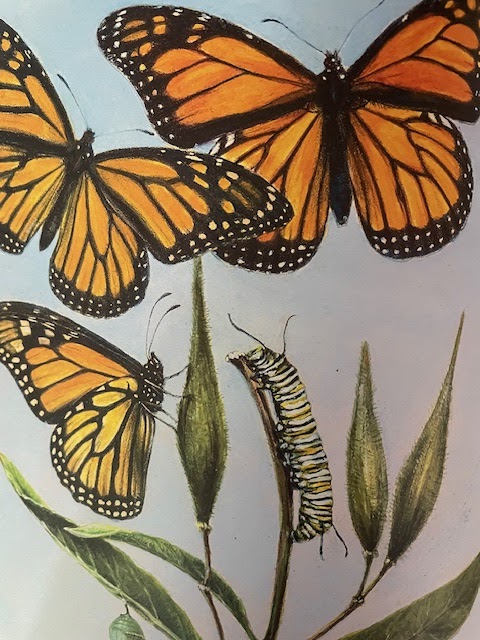Can we save monarch butterflies?
Seeing the first monarch of the summer makes me feel both hopeful
and sad. As I watch the majestic orange and black butterflies fluttering around
the backyard, I consider their uncertain future as a species. Humans have
poisoned, plowed over, or encroached on their habitat, making it more
challenging for the monarch. Milkweed is less plentiful and it’s the only plant
where monarchs lay their eggs and a primary source of food. (They also eat
nectar from other plants.)
Did you know that not all monarchs migrate? Mother Nature
decides what colonies will make the arduous journey, say the enthusiastic
guides at the LaDew Butterfly House in Maryland. Ladew’s staff and
volunteers are serious about their role as caretakers of native species of butterflies
and moths and as educators for visitors, like me. Last July, the tour guides pointed out itsy-bitsy white butterfly eggs dotting the underside of milkweed leaves.
Monarchs that migrate embark on a 1,200 up to 2,800 mile
journey from their homes in U.S. and Canada to the forests of Central Mexico. Migratory
populations decreased by 59 percent in 2024, according to the World Wildlife
Fund. Each year, their numbers decrease.
Many butterflies are near extinction. The Poweshiek skipperling, once common in the Midwest,
is one of the rarest butterflies. Nearly 1,200 of these endangered butterflies
are back in the wild this summer, thanks to the John Ball Zoo in Grand Rapids’
program.
I grew up in the Midwest. As a young girl, a small white
butterfly with papery wings and a cheery disposition, befriended me. Was it a
skipperling? I am not sure. But my winged friend, small and delicate,
waited for me on the windowsill every morning and danced by my shoulder. One morning, the
windowsill was empty, and I felt empty too.
Of course, I didn’t know then that a butterfly lives only a few days or weeks depending on the species. Now, I realize that these precise creatures’ lives depend on us. It’s up to us to ensure there are butterflies for the next generation.
**



.jpg)

No comments:
Post a Comment
Note: Only a member of this blog may post a comment.